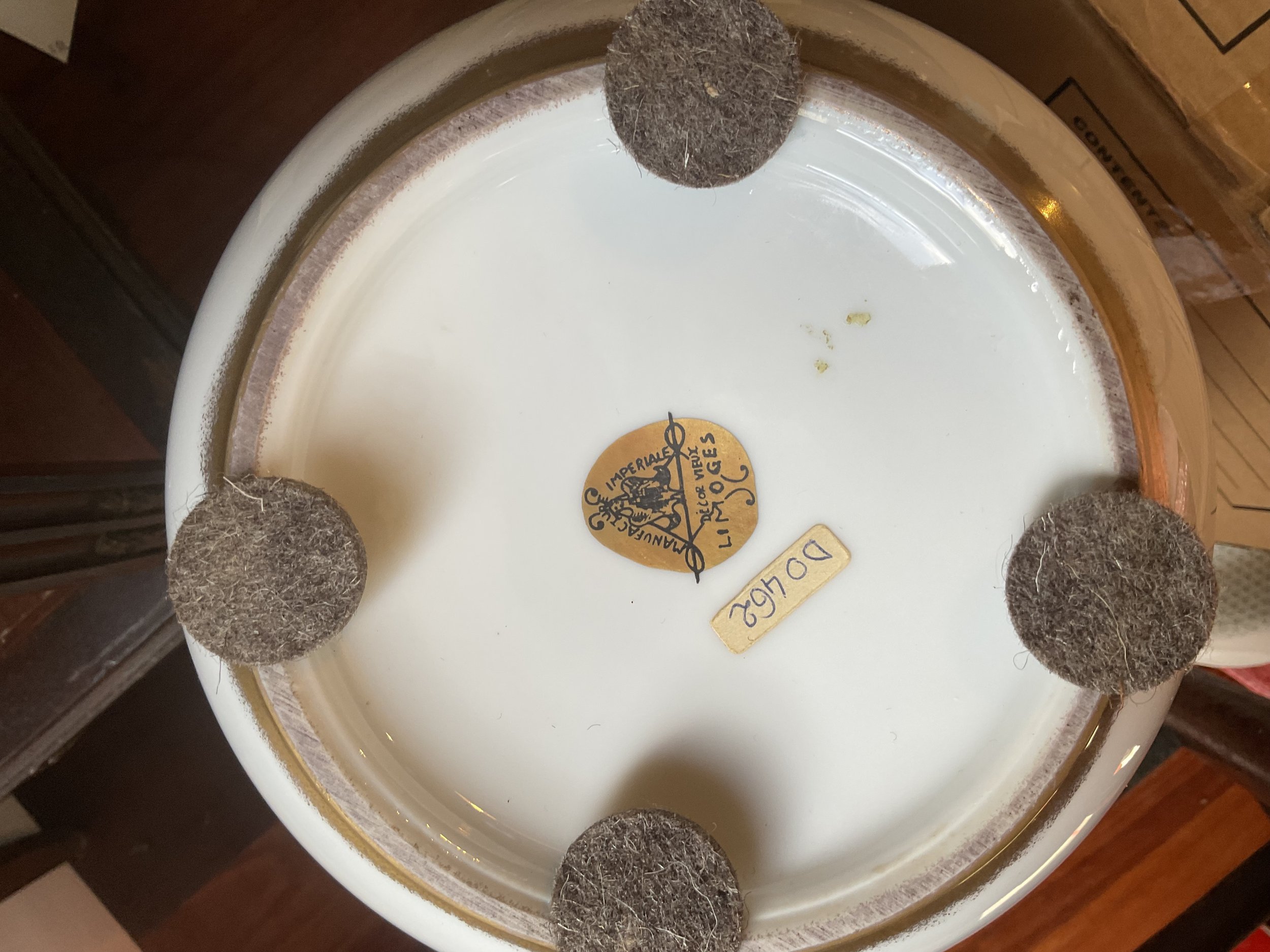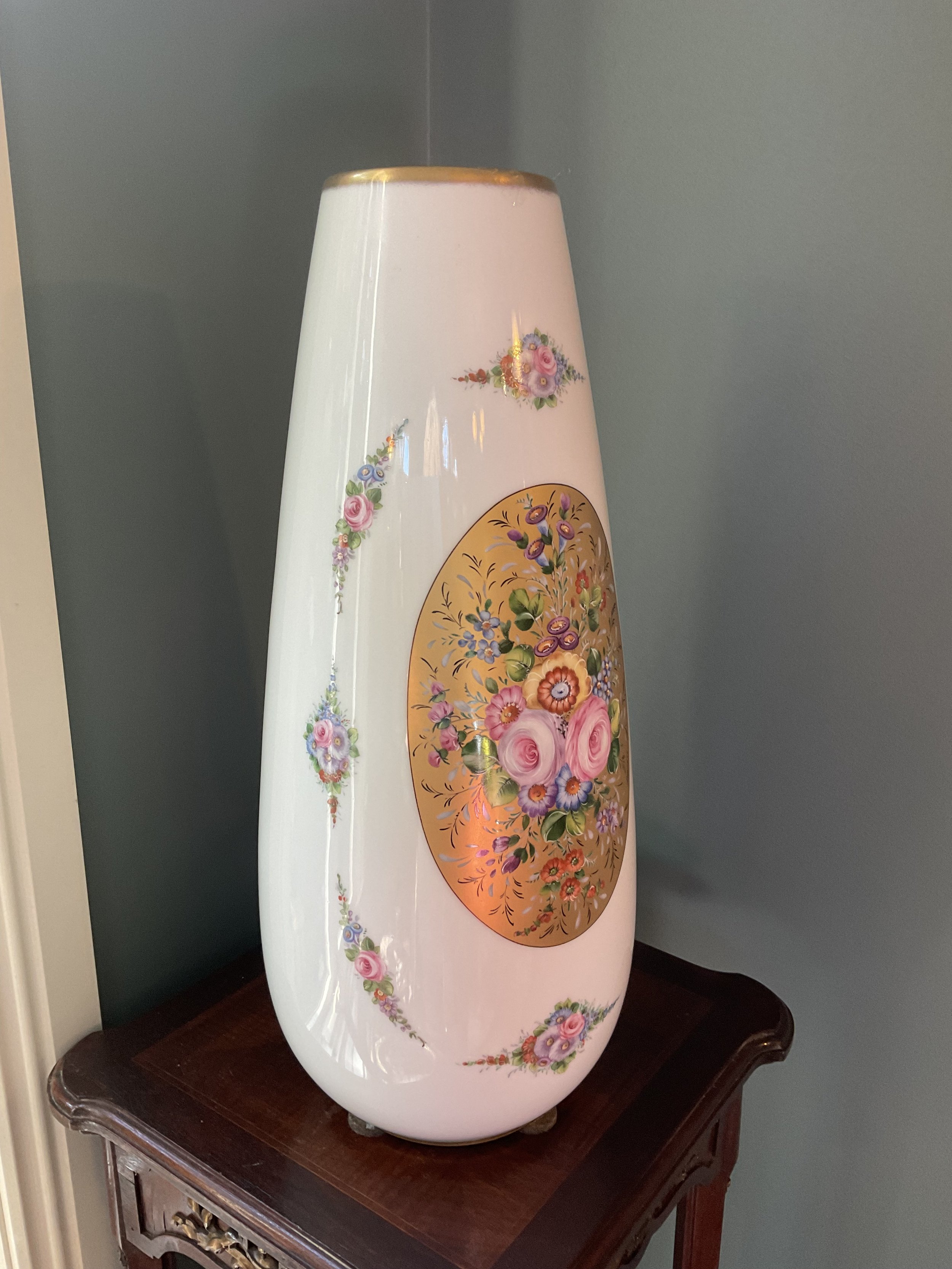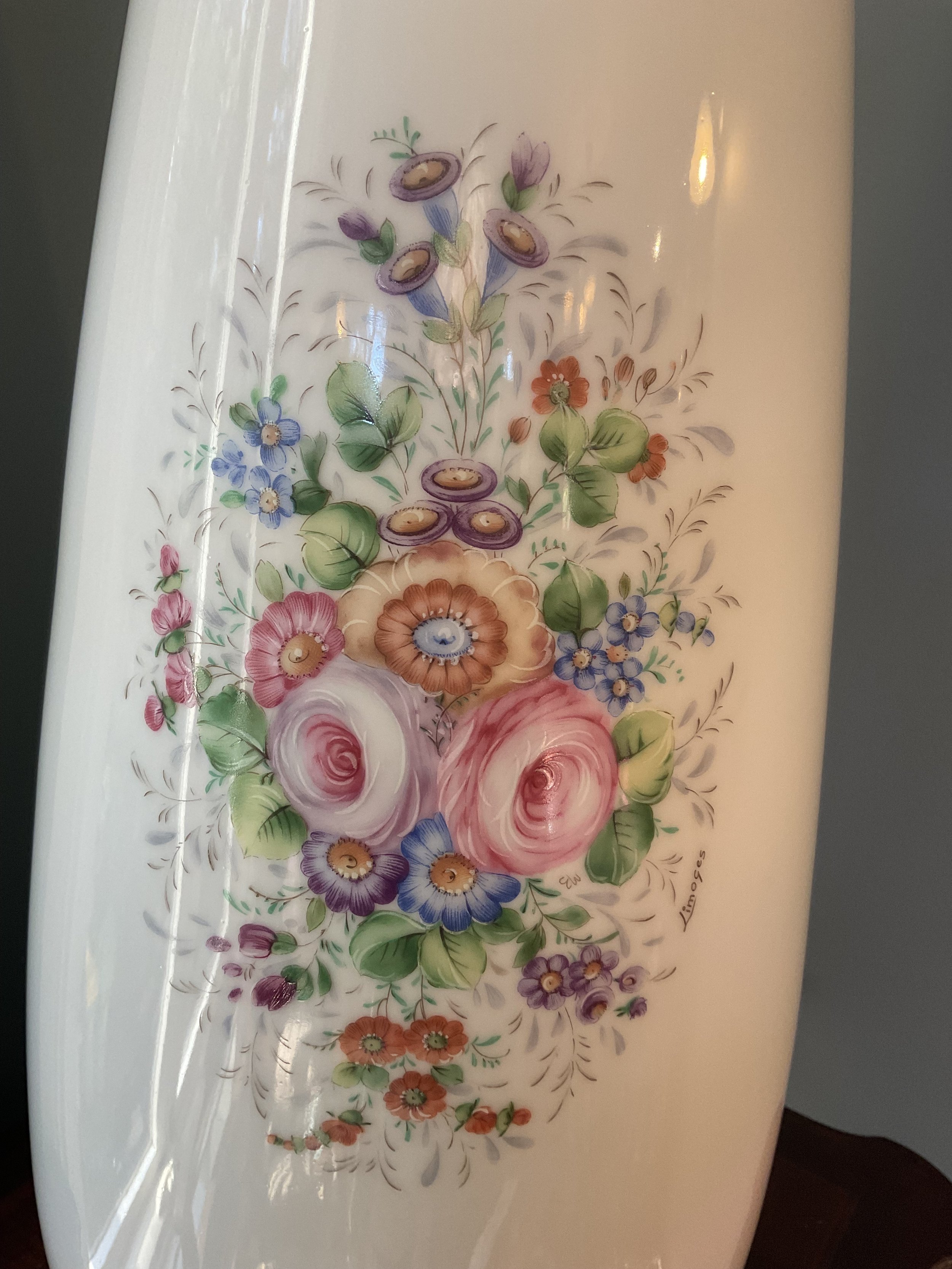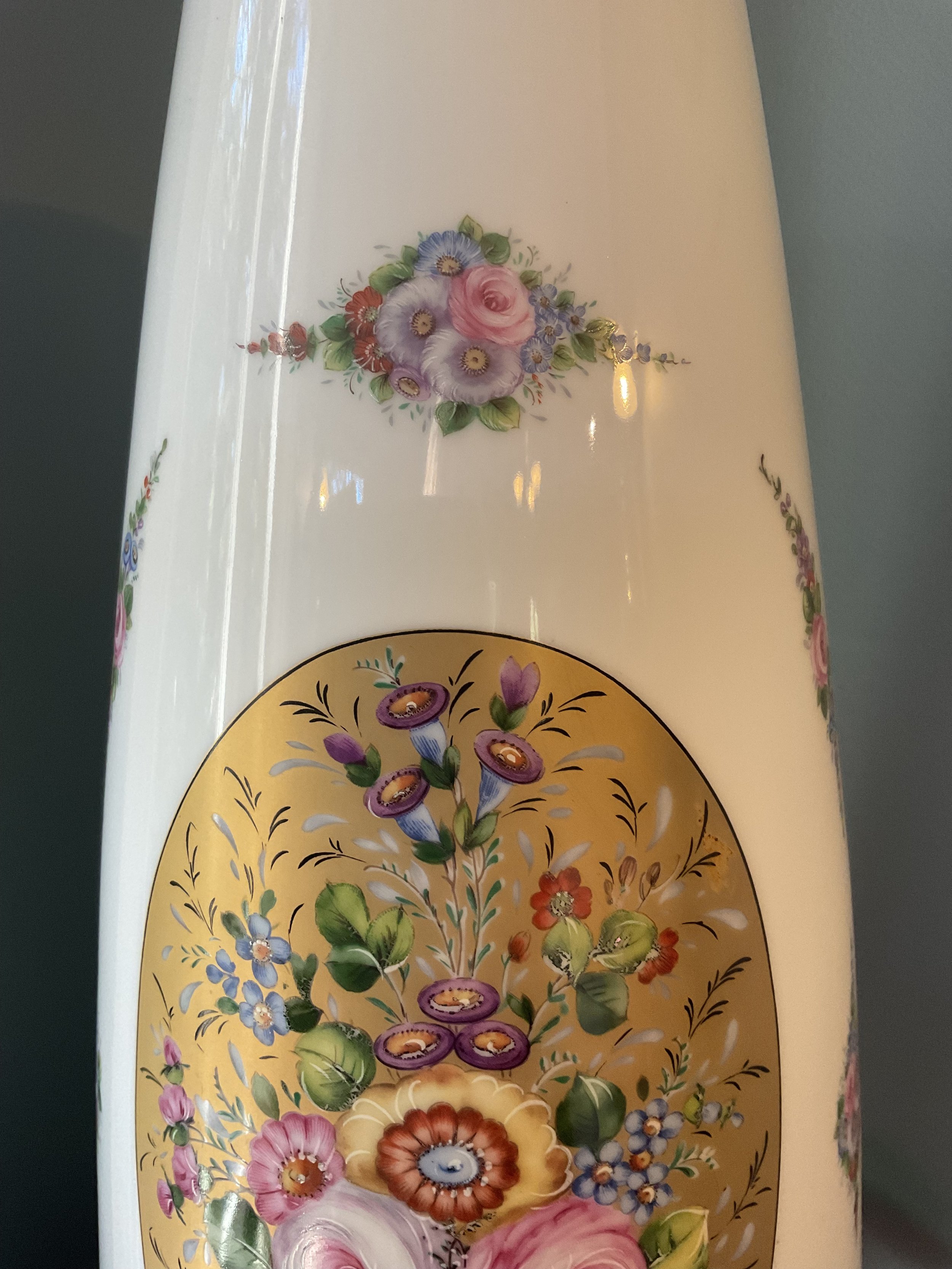 Image 1 of 12
Image 1 of 12

 Image 2 of 12
Image 2 of 12

 Image 3 of 12
Image 3 of 12

 Image 4 of 12
Image 4 of 12

 Image 5 of 12
Image 5 of 12

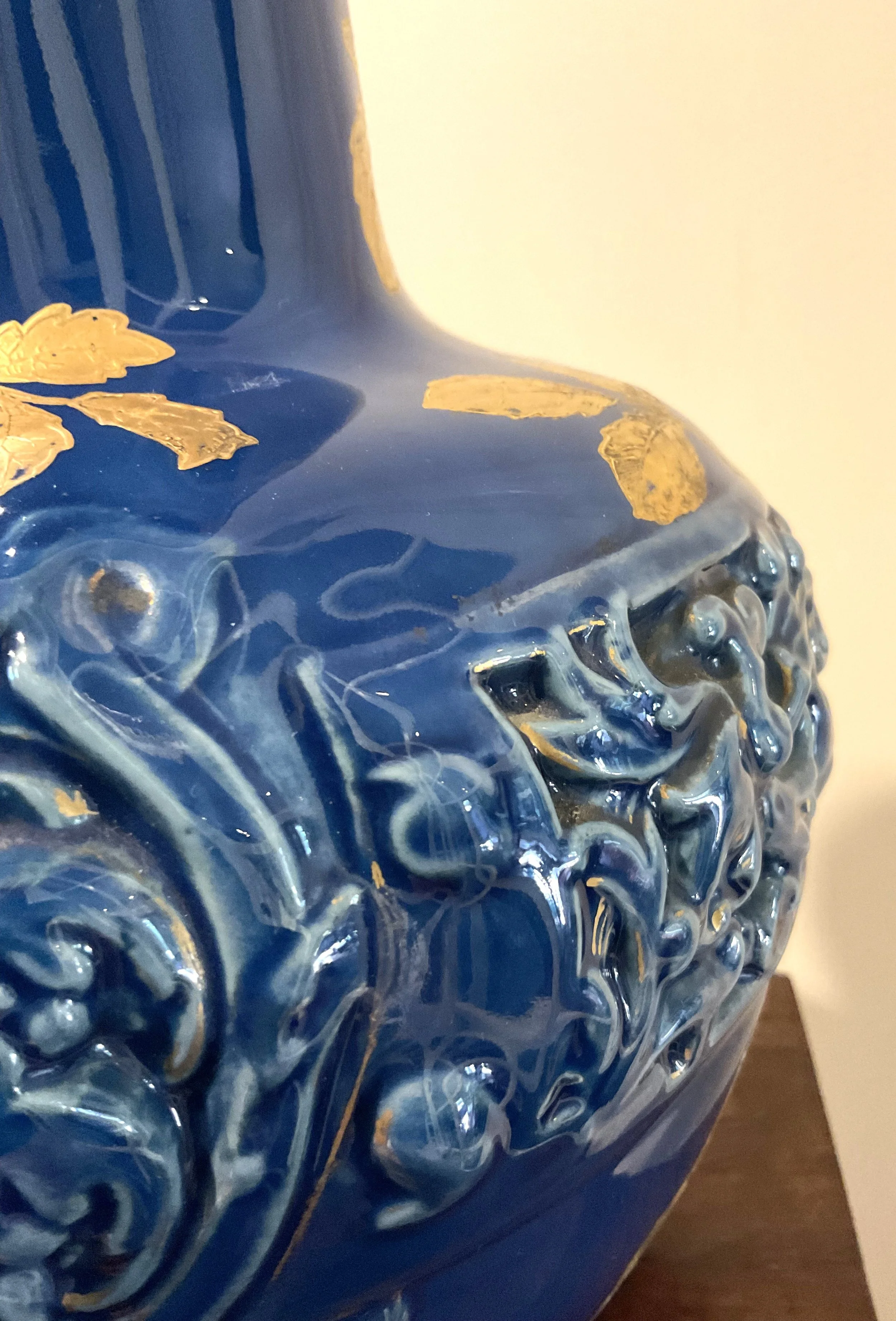 Image 6 of 12
Image 6 of 12

 Image 7 of 12
Image 7 of 12

 Image 8 of 12
Image 8 of 12

 Image 9 of 12
Image 9 of 12

 Image 10 of 12
Image 10 of 12

 Image 11 of 12
Image 11 of 12

 Image 12 of 12
Image 12 of 12













Charles Field Haviland Bottle Vase With Lid
This Charles Field Haviland Limoges vase with lid was made in the late 19th century. The design on this vase has been inspired by oriental art. Typical of the art nouveau period this deep Prussian blue vessel has a moulded frieze of chrysanthemum and botanical motifs. Trailing over this is a loose arrangement of gilded foliage. The stamp CFH/GDM is on the underside.
Charles Field Haviland (1832 – 1896) was born in the United States. In the 1850s he moved to Limoges, France to work for his uncle David Haviland who was the founder of Haviland and Co. Porcelain Factory. They produced China specifically for the American market, in particular dinner services which became very popular in the late 1800s.
Limoges porcelain is a hard paste porcelain produced by factories in and around Limoges, France. The production of Limoges porcelain began in the late 18th century. By about 1830, Limoges had replaced Paris as the main centre for private porcelain factories. Limoges has retained this position to the present day. Revered for its beauty and craftsmanship, kaolin Limoges clay is translucent, durable, non-porous and pure white. Kaolin (also known as China clay) is a hydrated aluminium silicate crystalline mineral formed over many millions of years. European efforts to discover the secrets of making hard paste porcelain had lasted for centuries. It was accidently discovered around 1776 at Saint- Yrieix-la-Perche, close to Limoges. A chemist’s wife, who was out foraging for ingredients, thought the white substance would make a good replacement for soap, which could be used to wash and bleach linen. Some well-known makers of Limoges include Bernardaud, J.L. Coquet, Raynaud, Haviland, Jaune de Chrome and Albert Pinto.
This elegant bottle vase with lid stands approximately 33 cms in height. It is in very good condition. There is a little wear and tear to some of the gilding.
This Charles Field Haviland Limoges vase with lid was made in the late 19th century. The design on this vase has been inspired by oriental art. Typical of the art nouveau period this deep Prussian blue vessel has a moulded frieze of chrysanthemum and botanical motifs. Trailing over this is a loose arrangement of gilded foliage. The stamp CFH/GDM is on the underside.
Charles Field Haviland (1832 – 1896) was born in the United States. In the 1850s he moved to Limoges, France to work for his uncle David Haviland who was the founder of Haviland and Co. Porcelain Factory. They produced China specifically for the American market, in particular dinner services which became very popular in the late 1800s.
Limoges porcelain is a hard paste porcelain produced by factories in and around Limoges, France. The production of Limoges porcelain began in the late 18th century. By about 1830, Limoges had replaced Paris as the main centre for private porcelain factories. Limoges has retained this position to the present day. Revered for its beauty and craftsmanship, kaolin Limoges clay is translucent, durable, non-porous and pure white. Kaolin (also known as China clay) is a hydrated aluminium silicate crystalline mineral formed over many millions of years. European efforts to discover the secrets of making hard paste porcelain had lasted for centuries. It was accidently discovered around 1776 at Saint- Yrieix-la-Perche, close to Limoges. A chemist’s wife, who was out foraging for ingredients, thought the white substance would make a good replacement for soap, which could be used to wash and bleach linen. Some well-known makers of Limoges include Bernardaud, J.L. Coquet, Raynaud, Haviland, Jaune de Chrome and Albert Pinto.
This elegant bottle vase with lid stands approximately 33 cms in height. It is in very good condition. There is a little wear and tear to some of the gilding.
Not suitable for delivery via Australia Post. Collection by appointment. Please make contact if you would like to arrange another type of delivery. Free delivery to some Melbourne metropolitan areas can be arranged.




































